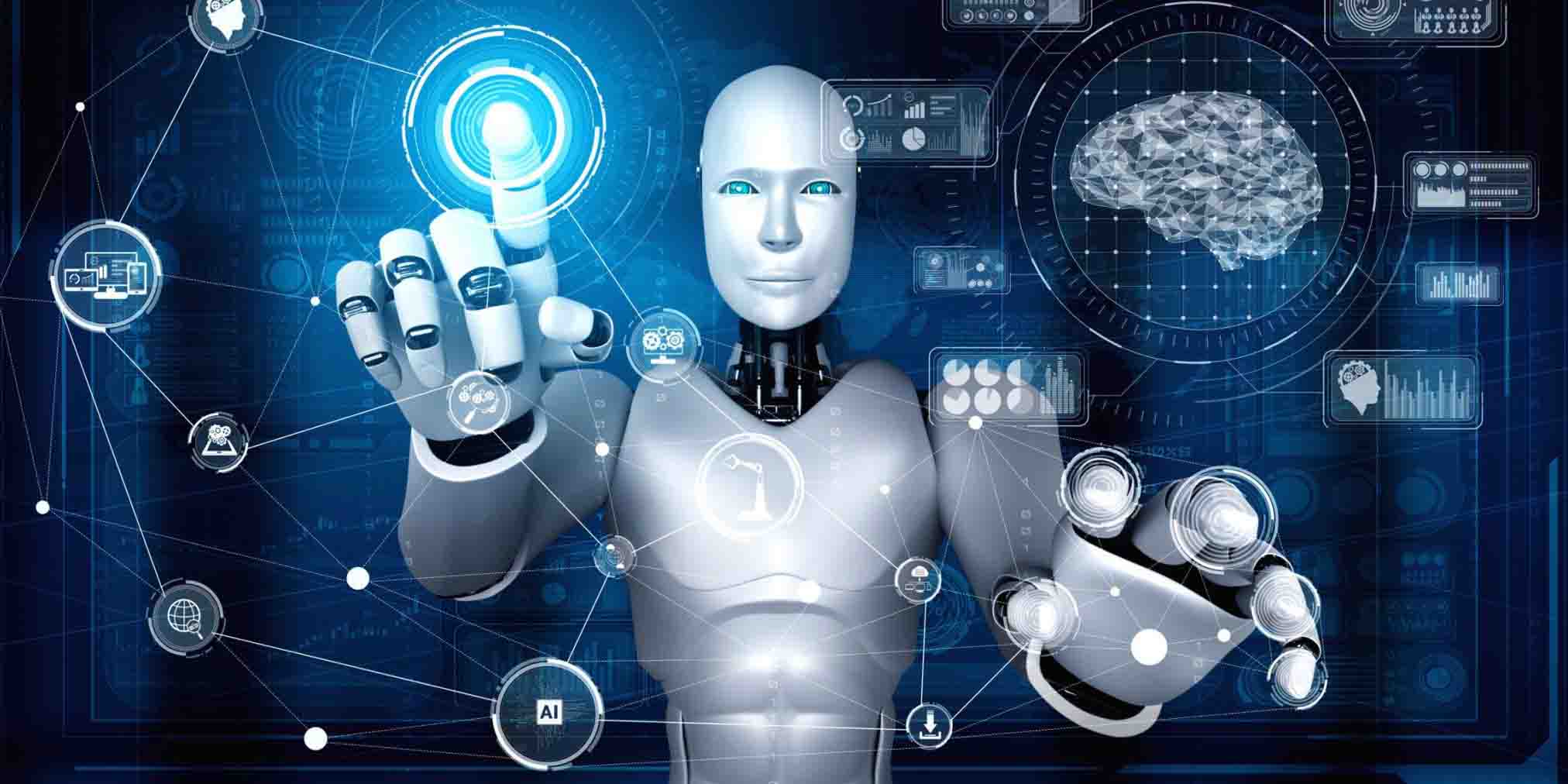

September 5, 2023
What are the different types of artificial intelligence?
The term “artificial intelligence” has been around for some time, and its journey from a concept to reality has been both challenging and fascinating. But what is artificial intelligence? It refers to intelligent machines programmed to think, learn, and react like humans in various situations. AI is used to create intelligent solutions by simulating the behavior of an intelligent being with the ability to learn, combine and deduce.
AI Development Services are focused on developing programs that enable computers to extract meaningful information from data inputted by humans, such as:
- recognizing patterns
- making decisions based on those patterns
- predicting outcomes and solutions to problems.
It is also used in robotics and other areas of automation, including autonomous transportation. AI has made it possible for technology to do many things that humans can do but faster, more accurately, and at a lower cost. This type of technology helps businesses become more efficient while reducing their costs.
Types of Artificial Intelligence
-
Reactive Machines
Artificial intelligence has been around for quite some time. In recent years, its capabilities and applications have grown significantly. There are many different types of artificial intelligence, including Reactive Machines.
Reactive Machines are AI that can only react to situations based on collected data about past events. This type of AI does not collect data for future use; instead, it quickly responds to a situation with the help of its programming and algorithms without any thought to an upcoming event or conversation in the present moment.
Reactive machines can be used in self-driving car systems, natural language processing, and image processing technology. Although they cannot plan, they can make decisions faster than their human counterparts in similar scenarios.

-
Limited Memory
A critical subset of AI is Limited Memory, which uses algorithms designed to allow technological systems to remember past interactions and decisions to inform new ones. This type of AI employs sophisticated processes that analyze large amounts of data, enabled by complex machine learning models and software systems.
This form of AI allows for the construction of autonomous vehicles, natural-language processing programs, predictive algorithms and much more. Despite its promise and wide range of potential applications, this type of AI remains in its early stages as more research is needed to maximize its effectiveness.
-
Theory of Mind
Theory of Mind is one type used to create intelligent machines that interpret human behavior. These systems can be used for various applications, from understanding how humans make decisions to automating customer service tasks to recognizing facial expressions for the development of robotics.
With Theory of Mind, AI can focus on problem-solving and extrapolate information from what it sees. Ultimately, these AI systems can learn from data like humans to become more efficient and accurate with their results while exhibiting traits that mimic our behavior.
-
Self-awareness
Self-awareness refers to the ability of an AI system to understand and respond to its thought processes and feelings. This type of AI goes beyond the capabilities of a standard AI system, which relies on predetermined patterns or algorithms toward a platform-specific goal.
Self-aware AIs are designed to adjust their parameters as needed, allowing them greater flexibility in analyzing situations and coming up with solutions. While incredibly complex and sophisticated, this kind of AI has yet to reach its full potential as the field is developed further on both the technical and ethical sides.
-
Machine Learning
Machine learning is a subset of artificial intelligence that involves developing algorithms and statistical models that enable computer systems to learn from data and improve their performance on a specific task without being explicitly programmed. It makes judgments using data to create prediction models, spot patterns, and detect trends.

Machine learning is employed in a wide range of applications, from speech recognition and picture classification to fraud detection and recommendation systems. Machine learning, a crucial component of AI, is transforming industries and how we live, work, and interact with technology.
To sum up, AI is a rapidly growing field with many potential applications. Each of these types of artificial intelligence has unique strengths and weaknesses. They can be applied to different situations to create more efficient processes and improve customer experience. With such an exciting future ahead for this technology, it’s no surprise that businesses are investing heavily in research and development within these areas.
Ultimately, the use of AI will continue to increase as the industry develops even further over time. By responsibly using its power, we can look forward to greater insights and opportunities than ever before.







